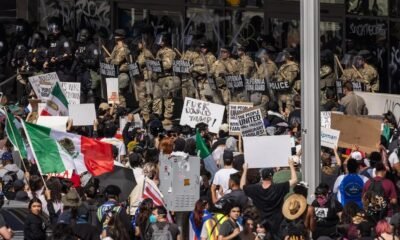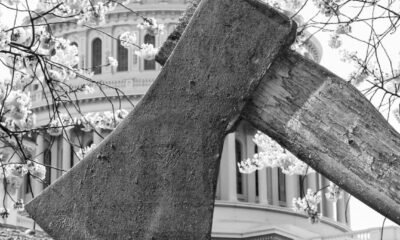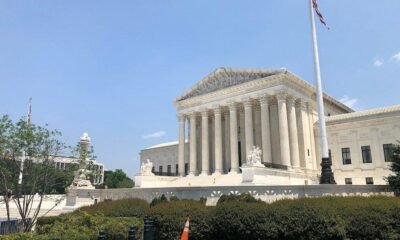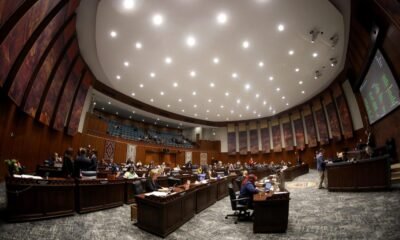arizona
Court Upholds Az ‘Open Primaries’ Measure, Confirms Count of Prop. 140 Votes

A Maricopa County Superior Court judge has ruled that votes for a ballot proposition aimed at ending partisan primaries in Arizona will be counted. This decision marks a significant moment in the ongoing debate surrounding Proposition 140, which seeks to amend the Arizona Constitution to establish an open primary system.
The Make Arizona Elections Fair Act would allow all registered voters to select from all candidates in primary elections, regardless of party affiliation. The leading vote-getters would then advance to the general election, potentially representing various parties.
However, the proposition has faced numerous legal challenges, notably from the conservative Arizona Free Enterprise Club, which argues that many signatures submitted to qualify the measure for the ballot are duplicates. This dispute could potentially diminish the total count below the threshold needed for the ballot.
Initially, Judge Frank Moskowitz rejected evidence regarding the alleged duplicate signatures, citing time constraints ahead of the printing deadline. However, after the Arizona Supreme Court intervened, he was ordered to reopen the case to investigate the validity of the signatures.
The Supreme Court’s previous ruling indicated that if the evidence proved insufficient signatures, Moskowitz had the authority to bar the counting of votes for Proposition 140. Yet, proponent attorneys contested this decision, claiming it disregarded established precedent. This week, the Supreme Court reversed its earlier directive, supporting the continued counting of votes.
In a ruling on Thursday, Moskowitz aligned with proponents of the measure, asserting that an injunction against counting votes would be ineffectual since the challenge has extended well past the ballot printing deadline of August 23. His decision was based on the argument that a lack of statutory requirement to resolve challenges prior to that deadline should not impede the voting process.
Moskowitz also emphasized that “double counting” invalid signatures would violate both state and federal constitutions. He noted that such actions would unjustly elevate the necessary signature threshold for ballot initiatives, deviating from the established requirement of 15% of votes cast for governor in the prior election.
Further, he stated that the court lacked authority to issue an injunction that would prevent the counting of votes, as the governing law does not permit such a remedy. He posited that this legislative oversight suggests a lack of legislative intent for challenges to extend past the ballot printing deadline.
Supporters of Proposition 140 expressed optimism regarding the ruling. Sarah Smallhouse, chair of the Make Elections Fair Committee, heralded it as a victory for Arizona voters, affirming that every vote will be counted. Meanwhile, Chuck Coughlin, a consultant for the campaign, urged the Supreme Court to support the trial judge’s well-reasoned decision quickly.
Conversely, representatives from the Arizona Free Enterprise Club remain critical of the ruling, asserting that the proposition still fails to meet the signature requirement necessary for ballot inclusion. Club President Scott Mussi asserted confidence that the Supreme Court will ultimately dismiss Moskowitz’s ruling and disallow the counting of votes for Proposition 140.

















